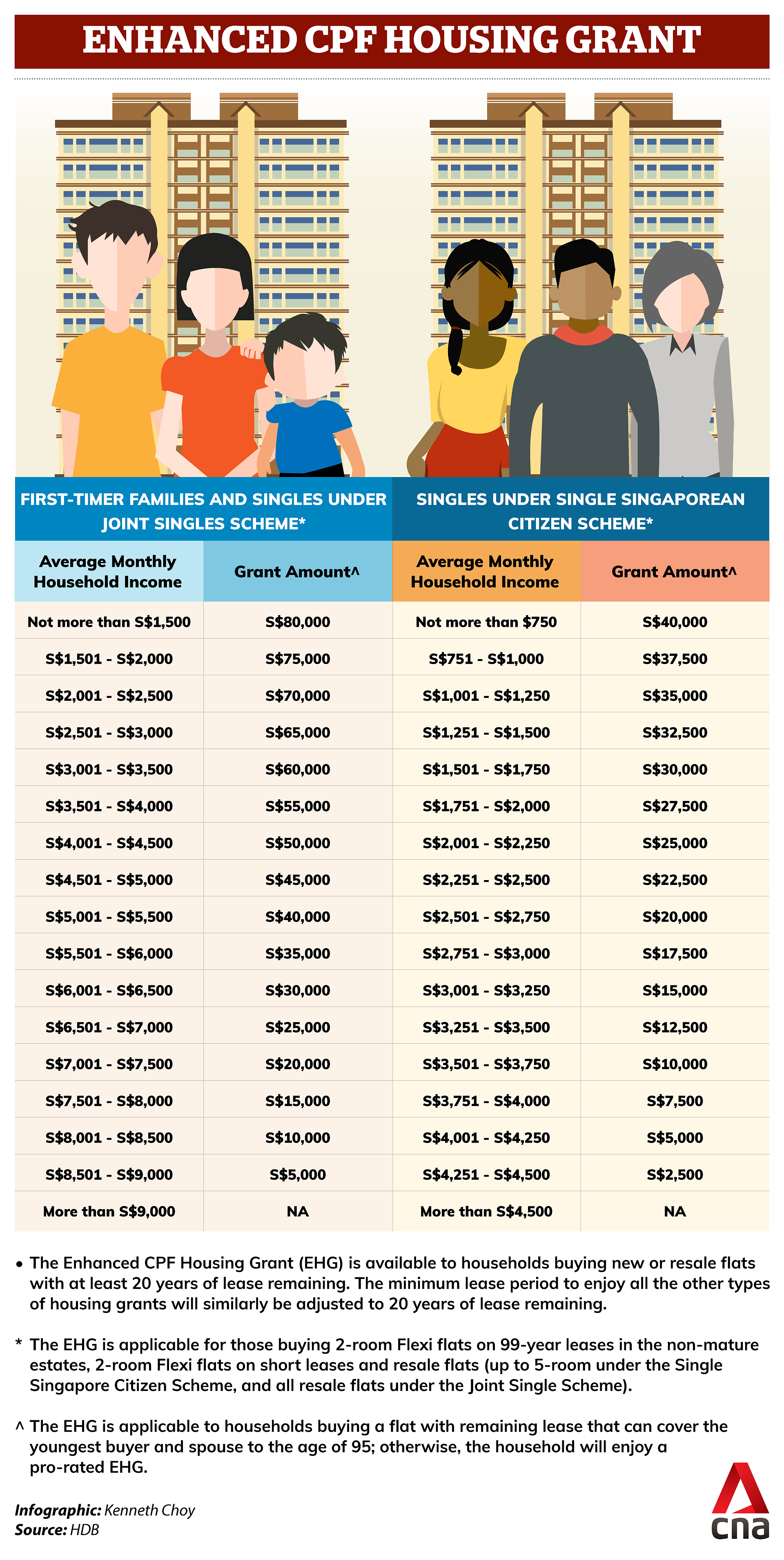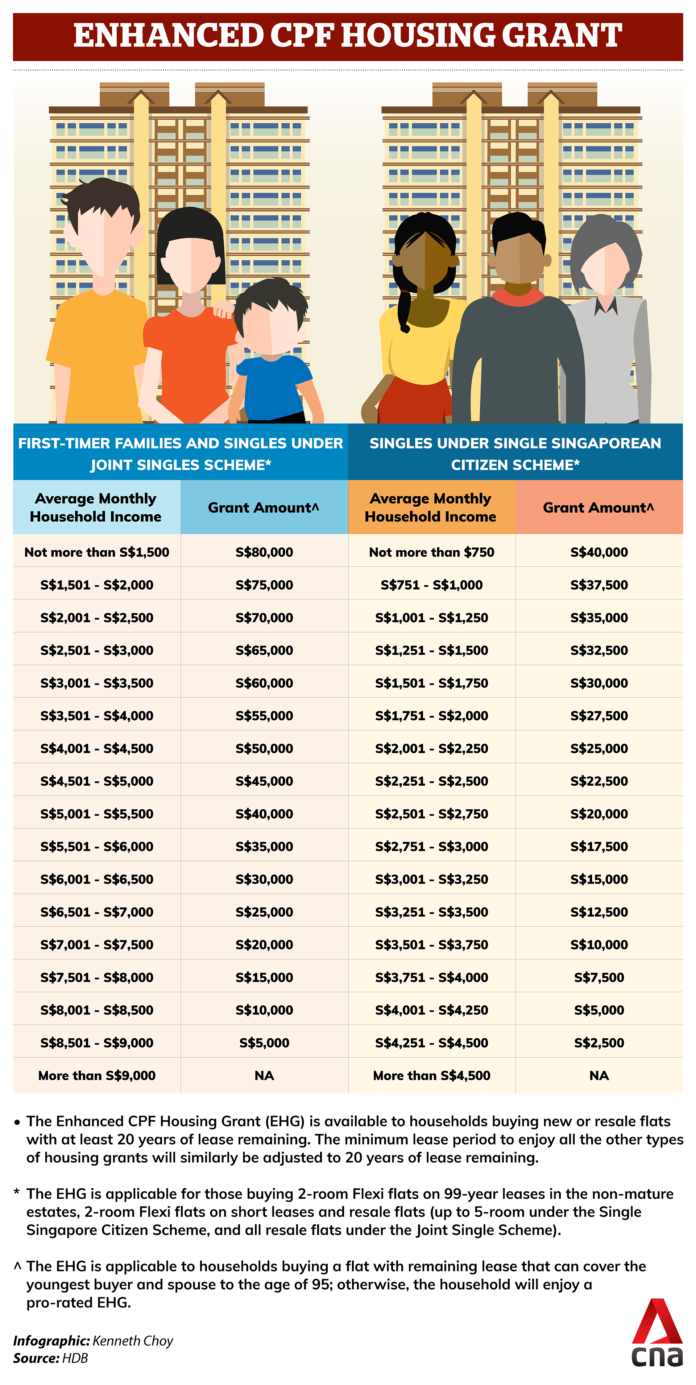SINGAPORE: More flats will be built next year to meet greater demand for public housing, National Development Minister Lawrence Wong said on Monday (Dec 16).
Between 16,000 and 17,000 Build-to-Order (BTO) flats will be launched next year, up from 14,600 flats this year, he said.
In a post on his ministry’s blog, Mr Wong said that the Government was “doubling down on our efforts to build affordable flats and good homes for all Singaporeans”.
Two major policy moves were made in September this year to help young couples buy their first homes – the income ceilings to buy new flats were raised and the Enhanced CPF Housing Grant was introduced.
The household income cap for BTO flats was raised from S$12,000 to S$14,000, and from S$14,000 to S$16,000 for those buying Executive Condominium units.
Under the Enhanced CPF Housing Grant, families can receive up to S$80,000 in grants when they buy a new Housing and Development Board (HDB) flat, and up to S$160,000 in grants when they buy a resale flat in the open market.
READ: Higher income ceilings, enhanced housing grant for HDB flat buyers

“These changes will lead to greater demand for public housing,” Mr Wong said.
The minister added that over the last five years, about 150,000 families booked or collected the keys to their first homes.
Many of these families purchased new flats in non-mature estates like Punggol, Sengkang or Tengah.
These flats were priced at “generous discounts” and as a result, most buyers of flats in new, non-mature estates only have to fork out a little or no cash at all on their mortgage payments, Mr Wong added.
MINISTRY TO STUDY FEEDBACK ON VERS
Mr Wong also said that the Ministry of National Development was working out the implementation details of the Voluntary Early Redevelopment Scheme (VERS) and will “share more when ready”.
Under the scheme, announced by Prime Minister Lee Hsien Loong in his National Day Rally speech, the Government will buy back older flats before their 99-year leases run out and compensate residents whose flats are taken back early.
Residents, who have to vote for VERS, can then use the proceeds to buy a new flat.
Commentary: A look at HDB flat affordability after recent housing policy moves
The ministry has received several alternative suggestions to VERS, including different ways to manage the expiring of HDB leases, said Mr Wong, adding that it will study the feedback in greater detail.
“It is worth noting that across these different proposals, there is common ground on some key fundamentals. In particular, there is broad-based recognition of the need for urban renewal in our land-scarce city, so that land can be recycled, and new flats can be built for future generations.
“This is the reason why so much of our land is on a leasehold basis, be it for private or public residential properties,” he wrote.





